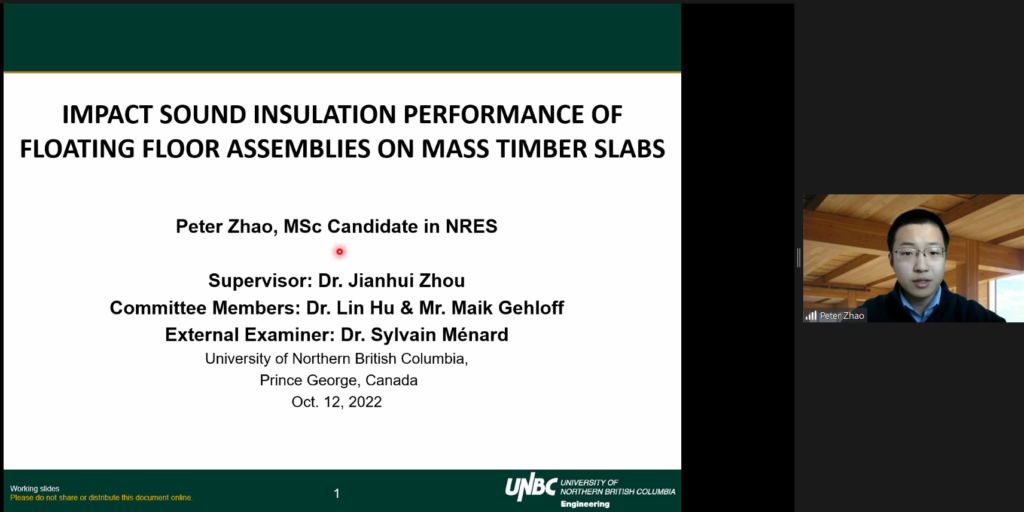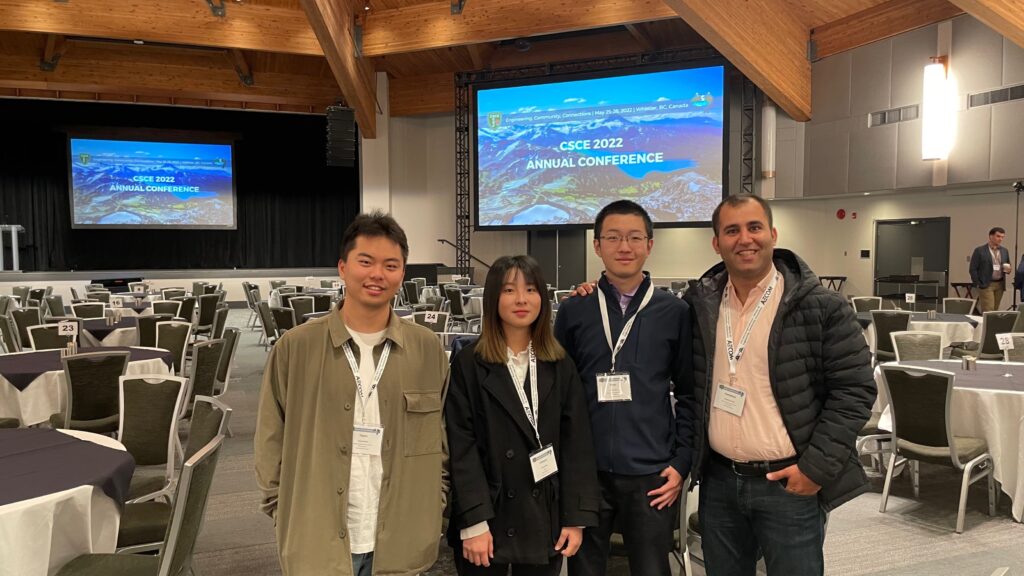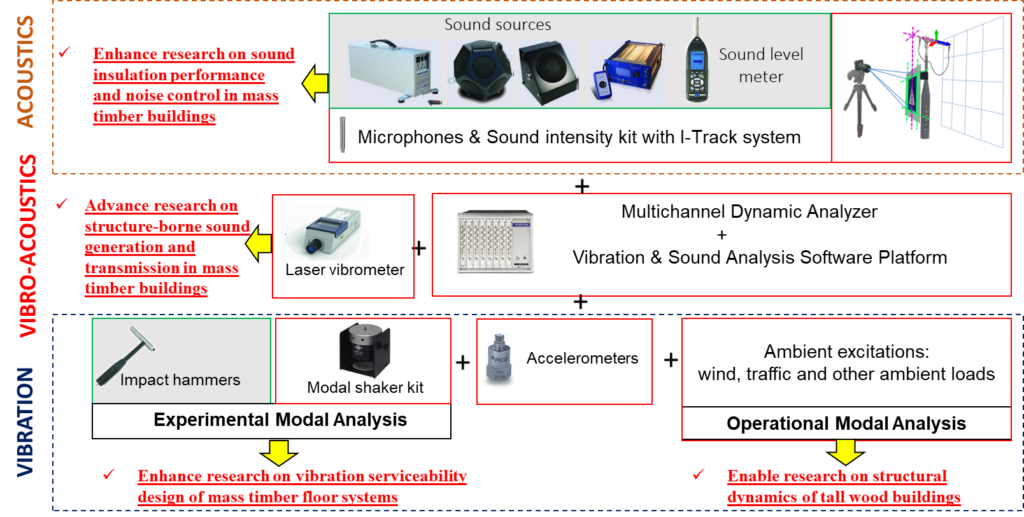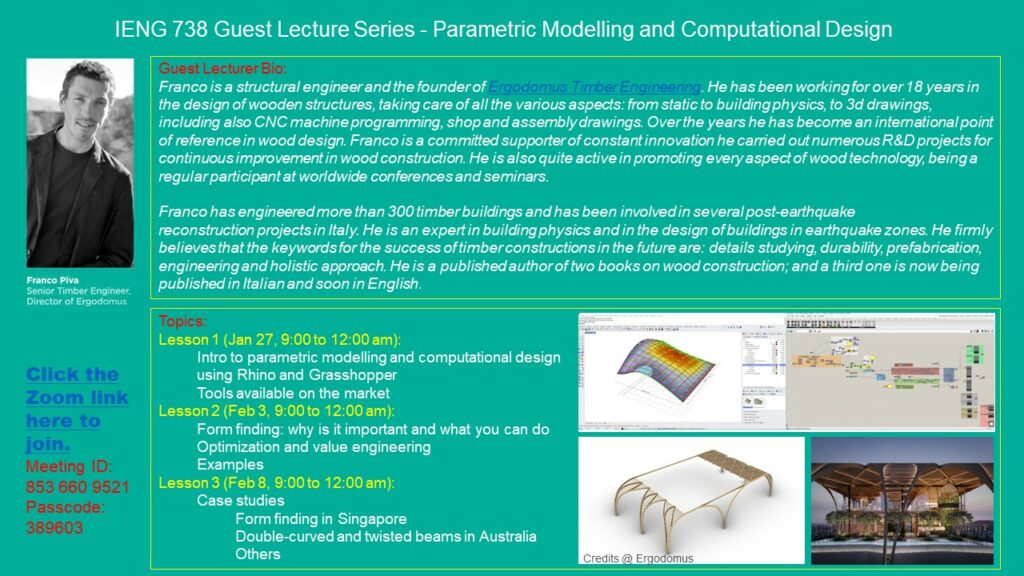We currently have an opportunity for 2-year MASc position or 1-year Post-doctoral fellow positon to develop a IoT based vibration performance monitoring system for mass timber buildings, starting in September 2025 or January 2026.
The MASc position is only available to applicants who are already in Canada.
Research Project
This research will develop a cost-effective vibration performance monitoring system based on Internet of Things (IoT) technology to conduct event-based vibration monitoring of mass timber buildings. The potential outcomes of the proposed research include, 1) a cost-effective monitoring system that can be deployed to mass timber buildings for data collection and data-informed structural design, building management and maintenance; 2) dynamic properties and response induced by different types and levels of load activities including footfall on floors, wind or seismic activities on a whole building.
Ideal Candidate
We are looking for candidates with the following qualifications:
- A Engineering or Applied Science degree in Civil/Structural Engineering, Wood Engineering, Mechanical Engineering, Engineering Mechanics, Engineering Physics or Electrical and Computer Engineering.
- Demonstrated experience in structural health monitoring, vibration testing, signal processing, skills in coding, sensor development, IoT and PCB design are highly desired.
- A proven track record of projects and/ or publications in respected scientific journals and conferences.
Application Process
Please first read here for application process.
Interested candidates are invited to submit their CV, transcript, and statement of purpose, highlighting their previous research experiences and achievements in the related fields. Please note that only eligible applicants will be contacted for further steps in the selection process.






